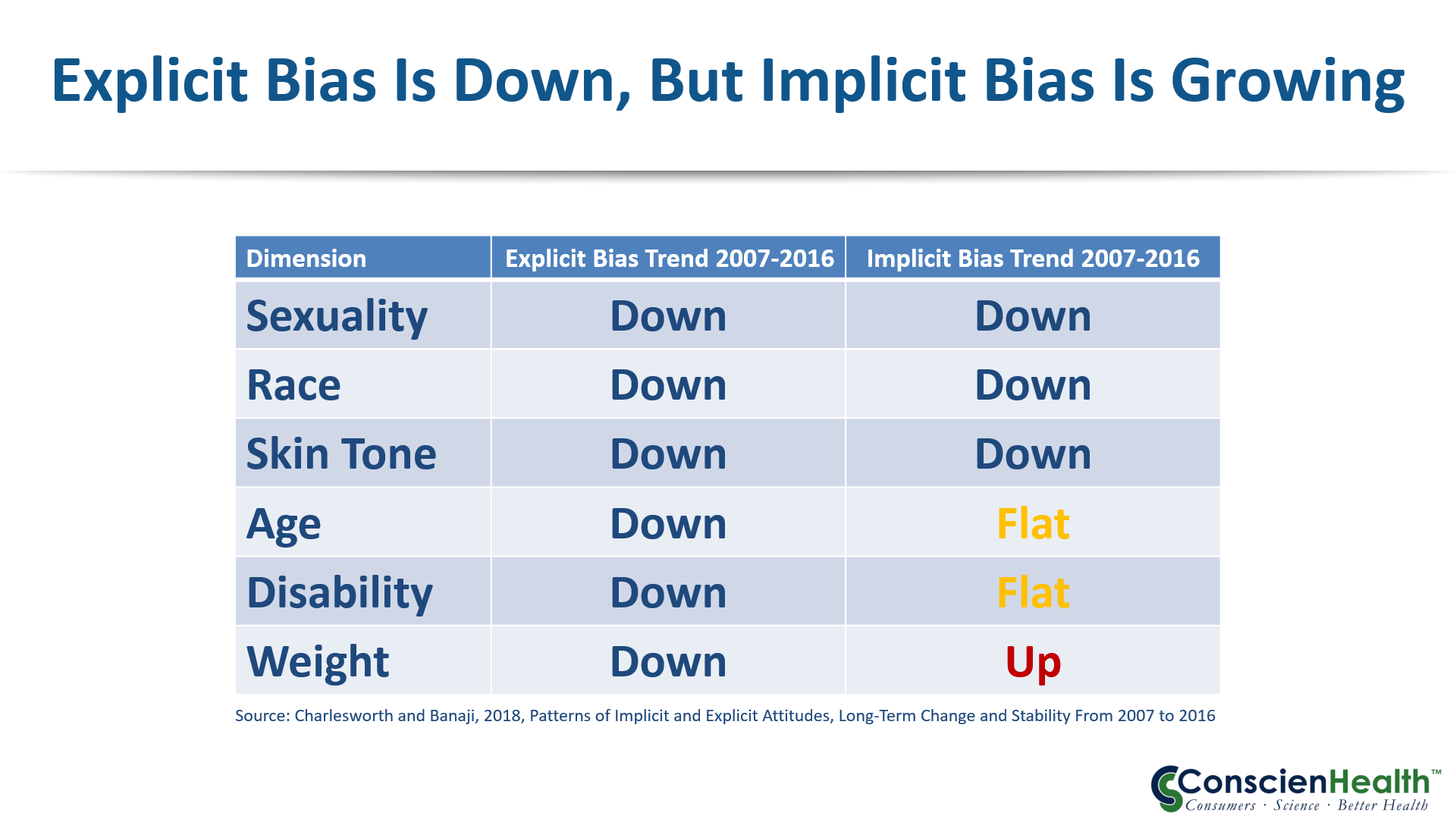
Is Public Health Only for Thin People?
 Let’s be clear. Anti-fat bias is everywhere we turn. It’s less explicit these days. But implicit anti-fat bias is stronger than ever. And you can find it in people who are thin and people who are not. There’s actually research on that. However, that same research tells us that thinner people tend to have stronger implicit weight bias. So it’s not surprising that Your Fat Friend would write, “I do not know how to trust thin people.” To underscore her point, she explains:
Let’s be clear. Anti-fat bias is everywhere we turn. It’s less explicit these days. But implicit anti-fat bias is stronger than ever. And you can find it in people who are thin and people who are not. There’s actually research on that. However, that same research tells us that thinner people tend to have stronger implicit weight bias. So it’s not surprising that Your Fat Friend would write, “I do not know how to trust thin people.” To underscore her point, she explains:
When faced with a fat person, nearly every thin person becomes a public health authority.
Thin Public Health
Is it the job of public health to scold people about their weight?
When President Barack Obama nominated Regina Benjamin to be Surgeon General of the United States, it did not matter that she had done outstanding work for health in rural poverty. Nor did it matter that she had received a “genius award” from the MacArthur Foundation. She was “under fire for being overweight,” said ABC News. A former editor of the New England Journal of Medicine, Marcia Angell, said, “It tends to undermine her credibility.”
So is public health only for the thin? Recently we heard a leader from CDC say that size-inclusive fashion shows put us “at risk of normalizing unhealthy weight.” She said this at the National Academy of Sciences. It’s hard to know who was shocked and who just nodded along with her. This is a place where almost everyone behaves themselves.
Discounting People Based on Size
At the end of the day, Your Fat Friend has a good point to make. For people living in bigger bodies, it is hard to trust people who are thin. Every one of us sees reasons for this every day. Looks, jokes, unhelpful advice. It’s tiresome.
Some people brush it off. Others internalize it. Speaking for ourselves, we note it. But we have an especially strong reaction when thin people in public health pontificate about how “we can’t treat our way out of the obesity problem.” That’s a tired, old, and false dichotomy that needs to expire. Treatment and prevention are complimentary, not mutually exclusive. And obesity care is not all about weight loss. It’s about health gain – irrespective of a person’s size. People need options.
So all of us need to examine our implicit bias about weight. Especially if we work in public health. Are people living with obesity at the table as we make policy? Are we listening?
Public health will fail the public if it’s only for thin people.
Click here for the essay by Your Fat Friend.
Public Health Commissioner’s Badge, photograph © City of Minneapolis Archives / flickr
Subscribe by email to follow the accumulating evidence and observations that shape our view of health, obesity, and policy.
Month x, 2019
